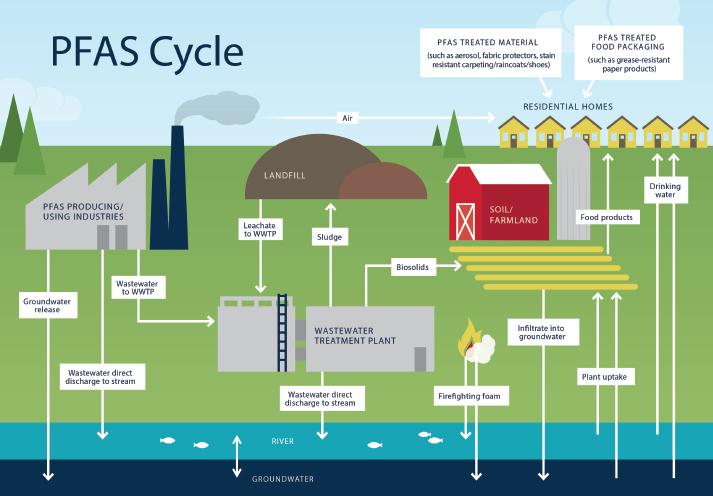Forever Chemicals Linked to Weaker Bones Among Young People
Exposure to forever chemicals is affecting bone health in adolescents and young adults, warns a new study. Researchers at USC explain that a lower bone mineral density puts a person at risk for brittle bones and other bone diseases.
Per and polyfluoroalkyl substances (PFAS) have earned the name forever chemicals because they degrade extremely slowly — if they even break down at all. These manufactured chemicals are found almost everywhere, from food packaging to cosmetics. In recent decades, studies have linked high exposure to PFAS to reproductive problems, a higher risk of cancer, and other health problems. However, most of these studies have focused on older, non-Hispanic White participants at a single point in their lives.
The current study built on this research because it is one of the first studies to show PFAS-related health problems among Hispanic adolescents and young adults. Bone mineral density increases during adolescence and peaks between the ages of 20 and 30. Afterward, it slowly decreases for the rest of adulthood. The team notes that Hispanics are a high-risk group for bone disease in adulthood.
“This is a population completely understudied in this area of research, despite having an increased risk for bone disease and osteoporosis,” says study senior author Vaia Lida Chatzi, a professor of population and public health sciences at USC’s Keck School of Medicine, in a media release. “We need to eliminate that exposure to allow our youth to reach their full potential in terms of bone development to help them avoid osteoporosis later in life.”
The authors tracked the bone health of 304 Hispanic adolescents with an average age of 11. The study authors took blood samples to measure PFAS levels in the body and used an X-ray scan to measure bone density. After a year and a half, the team retested to see if there was a change over time.
Natural Blaze is Google-Free — We Need Your Support
Contribute Just $1 Per Month at Patreon to Aid the Cause of Health Freedom
When the amount of perfluorooctanesulfonic acid (PFOS) in the blood doubled, people had an average decrease of 0.003 g/cm2 in bone mineral density. A separate test involved 137 young adults who underwent the same X-ray scans and blood samples for PFAS exposure at the time of the study and again four years later. A two-fold increase in baseline PFOS levels was associated with an average decrease of 0.032g/cm2 in bone mineral density.
According to the authors, the harmful effects of forever chemicals on human health should have lawmakers drawing up stricter regulations for this class of chemicals. Doing so would help everyone, but most importantly, it would protect high-risk communities like Hispanics, who are at greater risk of exposure to these pollutants. In the meantime, people can lower their PFAS exposure risk at home by avoiding nonstick pans and personal care products containing PFAS.
The study is published in the journal Environmental Research.
You might also be interested in:
- Dozens of ‘mystery chemicals’ never reported before discovered inside people
- Young Girls Exposed To Forever Chemicals Could Experience Delayed Puberty, Study Warns
- Millions Of Americans Exposed To Cancer-Causing Chemicals In Contaminated Drinking Water, Study Reveals
Source: Study Finds
Jocelyn is a New York-based science journalist whose work has appeared in Discover Magazine, Health, and Live Science, among other publications. She holds a Master’s of Science in Psychology with a concentration in behavioral neuroscience and a Bachelor’s of Science in integrative neuroscience from Binghamton University. Jocelyn has reported on several medical and science topics ranging from coronavirus news to the latest findings in women’s health.



